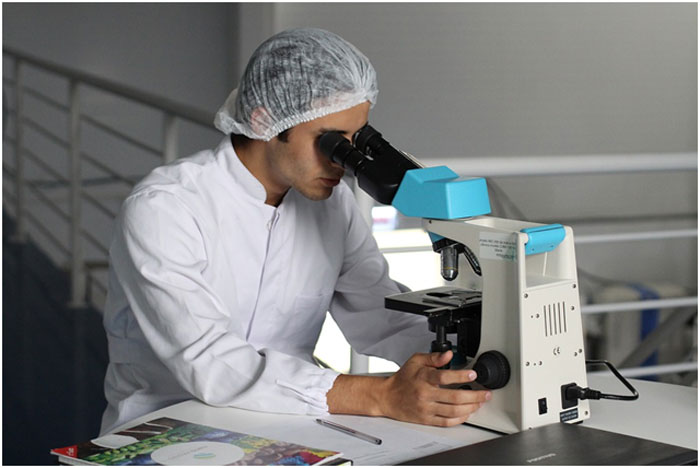
Nature of the Work
Medical scientists study ways to improve overall human health through trials and other investigative methods.
All medical scientists work in research and development. Some conduct basic research to increase knowledge of living organisms. Others, in applied research, use knowledge provided by basic research to develop new medicines, increase crop yields, and improve the environment. Medical scientists who conduct research usually work in laboratories and use electron microscopes, computers, thermal cyclers, or a wide variety of other equipment.
Advances in basic biological knowledge, especially at the genetic and molecular levels, continue to spur the field of biotechnology. Biological and medical scientists using this technology manipulate the genetic material of animals and plants, attempting to make organisms more productive or disease resistant. The first application of this technology has been in medical and pharmaceutical areas. Many substances not previously available in large quantities are starting to be produced by bio-technological means; some may be useful in treating cancer and other diseases.
Biological scientists who do biomedical research are usually called medical scientists. Medical scientists working on basic research into normal biological systems often do so in order to understand the causes of and to discover treatment for disease. Medical scientists may try to identify the kinds of changes in a cell, chromosome, or even gene that signal the development of medical problems, such as different types of cancer. After identifying structures of or changes in organisms that provide clues to health problems, medical scientists may then work on the treatment of problems. For example, a medical scientist involved in cancer research might try to formulate a combination of drugs which will lessen the effects of the disease. Medical scientists who have a medical degree might then administer the drugs to patients in clinical trials, monitor their reactions, and observe the results. The medical scientist might then return to the laboratory to examine the results and if necessary, adjust the dosage levels to reduce negative side effects or to try to induce even better results. In addition to using basic research to develop treatments for health problems, medical scientists attempt to discover ways to prevent health problems from developing, such as affirming the link between smoking and increased risk of lung cancer, or alcoholism and liver disease.
Working Conditions
Medical scientists are generally confined to laboratories or offices, mostly studying data and reports. Some work with dangerous organisms or toxic substances in the laboratory, so strict safety procedures must be followed to avoid contamination. Medical scientists also spend time working in clinics and hospitals administering drugs and treatments to patients in clinical trials.
Employment
Biological and medical scientists held about 120,000 jobs in 2016. The largest employer of these scientists was in research and development.
Training, Other Qualifications, and Advancement
Students planning careers as medical scientists should pursue a bachelor’s degree in biology, chemistry, or the like. It is also useful to develop adequate communication and writing skills to be able to write grants and publish research findings. Students then typically enter a dual-degree program that pairs a Ph.D with a specialized medical degree such as Medical Doctor (M.D.), Doctor of Dental Surgery (D.D.S.), Doctor of Dental Medicine (D.M.D.), Doctor of Osteopathic Medicine (D.O.), and advanced nursing degrees.
Those who attend medical school mostly spend their first two years in labs and classrooms focusing on topics such as anatomy, biochemistry, physiology, pharmacology, psychology, microbiology, pathology, medical ethics, and medical law. Some may be required to participate in residency programs.
Medical scientists often continue on to do postdoctoral work.
Most medical scientist do not require any licenses or certifications, unless they are administering drugs or gene therapy.
Medical scientists’ training starts in their postdoctoral research positions or their residencies. Residencies are usually conducted in hospitals and last about 3 to 7 years in duration.
Other qualities important to being a medical scientist are refined communication, critical-thinking, data-analysis, decision-making, and observation skills.
Job Outlook
Employment of medical scientists is projected to grow 13 percent from 2016 to 2026, which is faster than average for all occupations. As the population continues to age, there will be an increase in medical conditions that need treatment and research.
Earnings
Median annual earnings for biological and life scientists were $82,090 in 2017. The lowest 10% earned less than $45,120 and the highest 10% earned more than $160,510.
Related Occupations
Agricultural and food scientists, epidemiologists, heath educators and community health workers, microbiologists, physicians and surgeons, veterinarians
Image Source: Pixabay.com
